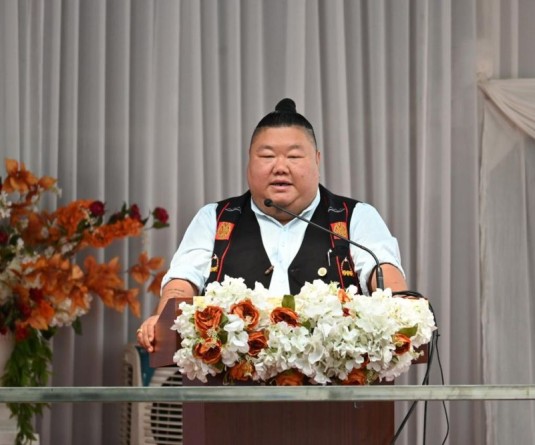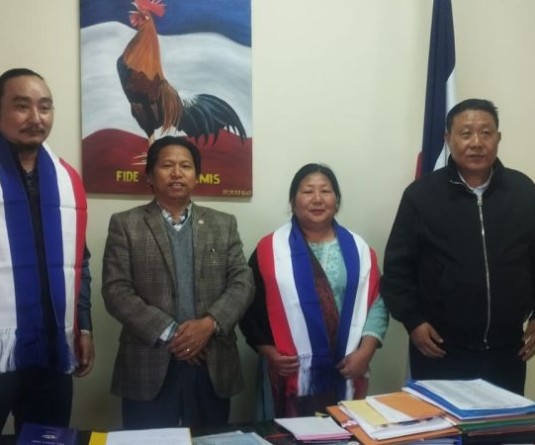
Al Ngullie
Morung Express News
Dimapur | September 9
The Cabinet Sub-Committee on Petroleum and Natural Gas is scheduled to meet on Monday, September 10, in Kohima amidst heightened sense that the protracted and controversial issue about deciding to resume or discontinue oil and natural gas explorations in Nagaland may be nearing closure.
The Monday meeting of the subcommittee is considered significant keeping in mind that the Nagaland Cabinet-appointed body is understood to be examining ‘reports’ and ‘opinions’ apex tribal organizations presented in response to the draft modalities presented to them by Grant Thorton Advisory Private Limited, consultants to the subcommittee in the issue of oil and natural gas explorations in Nagaland.
Interestingly a key tribal frontal, the Kyong Hoho, has also presented an “alternative draft modality” as opposed to the committee’s own. The ‘hoho’ is a key tribal stakeholder here by virtue that it represents a region and community that owns the central areas of crude petroleum reserves in Nagaland. The reserves are Changpang and Tssori oil regions in Wokha district.
Chairman of the subcommittee HK Khulu confirmed that the reported meeting has been scheduled. However, he refused to divulge details about the agenda set for the meeting. Nonetheless, the senior government official’s comments to The Morung Express on Sunday, September 9, suggest that the 9-member body may be deciding on the ‘views’ of tribal organizations and frame the final recommendations which the committee has had to place before the Nagaland Cabinet. Citizens many note here that the Cabinet would be deciding on the fate of petroleum production works in Nagaland only after perusing the oil committee’s recommendations.
“The basic thing is that the Cabinet subcommittee is trying to make recommendations t the Cabinet in regard to oil and natural gas explorations. We have prepared some reports and we will decided (on them),” Khulu, also Principal Secretary & Commissioner, said. The official refused to provide details.
“Alternative draft modality”
Citizens may find the recent string of events surround the issue. For instance, the Guwahati High Court has also given a ruling just the previous Saturday that the Nagaland government undertake a survey to assess the damage caused by the oil spoil in Changpang since Oil & Natural Gas Corporation abandoned its work.
Also, the chief organization of the Kyong community, the Kyong Hoho has come out its own set of modalities touted as “alternative draft modality.” A copy of the magazine-length modality was accessed by The Morung Express. In the document the Kyong Hoho has picked holes in Thorton’s draft. For instance, the ‘hoho’ has found that there is no discussion or reference about enacting an Act on petroleum, a task that is most urgent that the Nagaland government undertake. Likewise, the organization said the economic analysis on the rate of royalty is arbitrary while Grant Thorton is ‘silent’ on the subject of Petroleum Tax – a key feature in revenue-sharing systems.
Another critical error the Kyong Hoho said to have found in the government’s draft modality is the absence of reference to production activities of natural gas. The government’s draft mentions only crude oil but not natural gas. Across the world there are separate royalty each for natural oil and natural gas as both possess different and distinct economic value and market demand, the hoho said.
The Kyong Hoho stated another point of significance – the land resource and the owner of the land the resource is being exacted from: “The report has recommended option-I for selection by the CSC. This model speaks about pure revenue-sharing on total revenues without land access charges. Such a model does not recognize the assessment of land holding pattern and social mapping with land owner identification. If this is accepted, it will reverse the very question of ownership of the land and the true essence of Article 371-A, sub-section (d) shall be defeated. The land cannot be alienated from the land owner and hence any access to his land must be sought and compensated for.”





